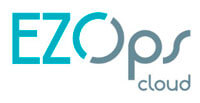Heroku Cloud has revolutionized the way businesses deploy and manage their applications, offering a seamless platform for developers to build, deliver, and scale applications with ease. In this article, we’ll explore the key features and benefits of Heroku Cloud, and how it can empower businesses and organizations to accelerate their digital transformation efforts.
Simplified Deployment Process
One of the standout features of Heroku Cloud is its simplified deployment process. With Heroku, developers can deploy applications in minutes, eliminating the need for complex infrastructure setup and configuration. The platform supports a wide range of programming languages, including Ruby, Java, Python, and Node.js, making it accessible to developers across different tech stacks.
Scalability and Performance
Scalability is crucial for businesses looking to meet the demands of a growing user base. Heroku Cloud offers seamless scalability, allowing applications to handle sudden spikes in traffic without any downtime. By leveraging Heroku’s auto-scaling capabilities, businesses can ensure optimal performance even during peak periods, enhancing the overall user experience.
Integrated Data Services
Heroku Cloud provides integrated data services, making it easy for developers to manage databases, cache, and other essential data components. With Heroku Postgres, developers can deploy and scale production databases effortlessly, while Heroku Redis offers a high-performance, in-memory data store for caching and session management. These integrated data services streamline the development process, enabling teams to focus on building great applications.
Collaboration and Team Productivity
Collaboration is at the heart of every successful project. Heroku Cloud fosters collaboration and team productivity through features like Heroku Pipelines and Review Apps. Heroku Pipelines allow teams to automate the deployment process, moving code changes seamlessly from development to production. Review Apps provide a staging environment for every pull request, enabling teams to test new features and fixes before they’re merged into the main codebase.
Security and Compliance
Security is a top priority for businesses hosting their applications in the cloud. Heroku Cloud offers robust security features, including data encryption, network isolation, and compliance certifications such as SOC 2, HIPAA, and PCI DSS. With Heroku Shield, businesses in regulated industries can build and deploy secure applications with confidence, knowing that their data is protected against unauthorized access and breaches.
Cost-Effective Solutions
Cost-effectiveness is another key advantage of Heroku Cloud. The platform operates on a pay-as-you-go model, allowing businesses to scale resources up or down based on their needs. With Heroku’s transparent pricing structure, businesses can avoid unexpected costs and optimize their spending on cloud infrastructure. Additionally, Heroku offers a free tier for small projects and startups, enabling them to get started with minimal upfront investment.
Conclusion
In conclusion, Heroku Cloud offers a comprehensive platform for building, deploying, and managing applications with ease. From simplified deployment processes to seamless scalability and integrated data services, Heroku empowers businesses to accelerate their digital transformation efforts and deliver exceptional user experiences. With its focus on collaboration, security, and cost-effectiveness, Heroku Cloud is the ideal choice for businesses and organizations looking to thrive in the digital age.
